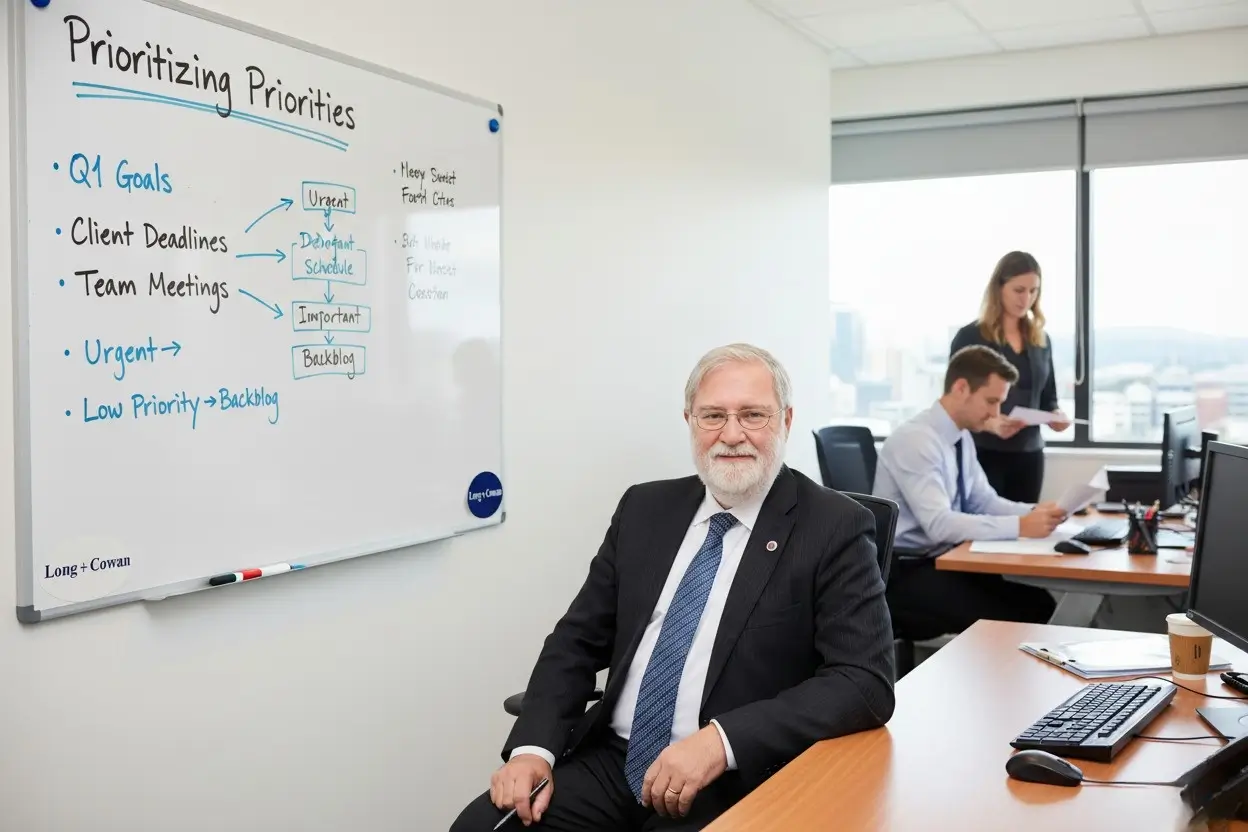Recruitment is one of the most important tasks a business owner can undertake. Yet many employers unintentionally cross legal boundaries during interviews by asking questions that seem harmless but are actually unlawful. At Long + Cowan, we remind Wellington businesses that good hiring practice begins with preparation, professionalism, and compliance.
New Zealand’s employment law protects applicants from discrimination based on age, gender, religion, ethnicity, disability, marital status, and other personal characteristics. Knowing what you can and cannot ask during an interview helps ensure your process is fair, consistent, and legally sound.
Understanding the Legal Framework
The Human Rights Act 1993 and the Employment Relations Act 2000 prohibit discriminatory hiring practices. These laws apply to all employers, regardless of company size. Any question that could reveal protected personal information, such as family status or religion, should be avoided.
Instead, focus every question on whether the applicant can perform the job safely, effectively, and legally. The following sections summarise which types of questions are acceptable and which should be avoided.
Marital Status and Family Questions
Able to Ask:
If appointed to this position, do you know of any reason why you may not be able to perform or fulfil the duties or responsibilities required?
Not Able to Ask:
• Are you married or planning to get married?
• Do you have children, or plan to have more?
• What are your arrangements for childcare or school pickup?
• What does your spouse do for work?
Questions like these appear friendly but can easily lead to claims of bias. Always keep the discussion focused on the applicant’s availability and ability to perform duties.
Religion and Beliefs
Able to Ask:
If appointed, do you know of any reason why you may not be able to perform or fulfil the responsibilities of the position?
Not Able to Ask:
• Are you religious, and what is your religion?
• Which church or temple do you attend?
• Do you observe religious holidays other than Easter and Christmas?
Religion should never enter an employment interview. Focus instead on job requirements, not belief systems.
Age
Able to Ask:
• Are you over eighteen years of age?
Not Able to Ask:
• What is your age or date of birth?
• When did you finish school?
Age-related questions are restricted because they may lead to age discrimination. The only lawful concern is whether the applicant meets the legal minimum age for employment.
Sexual Orientation and Gender
Not Able to Ask:
• Are you gay, lesbian, or heterosexual?
• Do you have a husband, wife, or partner?
• Are you male or female?
Avoid assumptions about gender or orientation. Advertisements and application forms should not specify or imply preference for either gender.
Nationality and Ethnic Origin
Able to Ask:
• Are you legally entitled to work in New Zealand?
Not Able to Ask:
• Were you born in New Zealand?
• Are you naturalised?
• What is your first language or where were your parents born?
Eligibility to work is a legitimate concern; ethnicity or national origin is not. The key question is whether the applicant can legally work for your business.
Impairment or Disability
Able to Ask:
• Do you have an impairment that could interfere with your capacity to perform the duties of this position?
• Are there any tasks you may not be able to perform?
If the applicant answers yes, discuss reasonable accommodations that would enable them to carry out their duties.
Not Able to Ask:
• Do you have any disabilities or illnesses?
• Are you an asthmatic, diabetic, or epileptic?
• Are you HIV positive?
Medical questions are off limits unless directly related to specific job requirements.
Race or Colour
Not Able to Ask:
• What is your ethnic background?
• Do you support integration or have opinions on race issues?
Racial or cultural questions have no place in recruitment. They cannot measure a person’s suitability or performance potential.
Criminal Record
Able to Ask:
• Do you have any convictions for criminal offences?
Not Able to Ask:
• Have you ever been arrested or charged?
Convictions may be relevant depending on the job type. However, the Criminal Records (Clean Slate) Act 2004 limits the use of certain past offences, so employers must proceed carefully.
Names and Identity
Able to Ask:
• Is any additional information about another name, such as a nickname or changed name, required to verify employment history?
Not Able to Ask:
• What is your maiden name?
• Have you ever changed your name by deed poll?
Asking about names should relate only to confirming background details. Personal history questions should remain strictly relevant to the role.
How to Protect Your Business During Recruitment
Follow these steps to ensure your hiring process stays compliant and professional:
• Prepare written interview questions based solely on job criteria.
• Train all staff involved in recruitment to recognise prohibited topics.
• Keep written records of interviews for accountability.
• Focus on skills, experience, and cultural fit within the workplace.
When in doubt, ask yourself whether a question relates directly to the applicant’s ability to perform the job. If it does not, leave it out.
Supporting Wellington Employers
At Long + Cowan, we understand the challenges of managing people and compliance simultaneously. Sound hiring practices protect your business from costly disputes and build a fair, inclusive workplace.
For confidential advice on employment policies or recruitment processes, contact us for more info by filling in an enquiry form or e-mailing or calling us during office hours. Protecting your business starts with getting interviews right.
















































